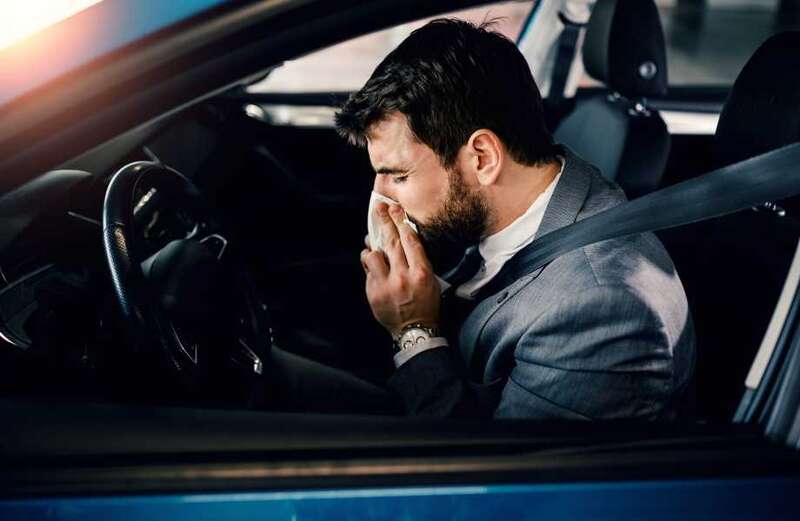AS hay fever season ramps up, many are reaching for relief, but for drivers, the choice of medication can have legal implications.
With hay fever symptoms worsening and older antihistamines potentially causing drowsiness, the decision to medicate while driving raises critical questions about road safety and legal compliance.

Is it illegal to take hay fever medication while driving?
It can be illegal to drive with legal drugs in your system if it impairs your driving.
Many hay fever medications, particularly older antihistamines such as chlorphenamine, can cause drowsiness, which can impact your ability to drive.
Thankfully, non-drowsy alternatives which include the active ingredients cetirizine, desloratadine, fexofenadine or levocetirizine can be taken to alleviate hay fever symptoms, but always ask your GP or pharmacist if you are in any way unsure about driving.
 Are there illegal baby names? Surprising monikers that are BANNED in other countries, from Sarah to Thomas
Are there illegal baby names? Surprising monikers that are BANNED in other countries, from Sarah to Thomas
Ben Pitcher, car expert and Owner of DPF Experts told The Sun: “While taking hayfever medication before driving might alleviate your hayfever symptoms, this could also result in a fine.
"Although relatively harmless, antihistamines are classified as pharmaceutical drugs and can cause drowsiness, affecting your ability to drive."
Can I be fined for taking antihistamines while driving?
You can be fined for driving while impaired by any substance, including antihistamines if it affects your ability to drive safely.
Ben Pitcher said: "Driving under the influence of any drug, including over-the-counter medications, is illegal if it impairs your abilities and can be considered ‘drug-driving’.
"This can result in a one-year driving ban and an unlimited fine or even six months in jail in the most severe cases.”
Driving while having antihistamines in your body could lead to a fine of up to £1,000 and three penalty points.
The severity of the fines can vary depending on factors such as the level of impairment and whether it led to an accident.
Is it an offence to drive while under the influence of antihistamines?
The Road Traffic Act 1988, makes it an offence to drive while under the influence of antihistamines.
In the UK, the law prohibits driving under the influence of drugs that impair your driving ability, regardless of whether they are prescribed medications like antihistamines or illegal substances.
If you are stopped by police and they have reason to believe you are impaired by drugs, they can conduct roadside impairment tests.
 All about Rachel Nickell who was murdered in front of her son Alex Hanscombe
All about Rachel Nickell who was murdered in front of her son Alex Hanscombe
Always consult with a healthcare professional or pharmacist about your specific medication and its potential effects on driving.
And read the information leaflet provided with your medication and follow any warnings about driving or operating machinery.
